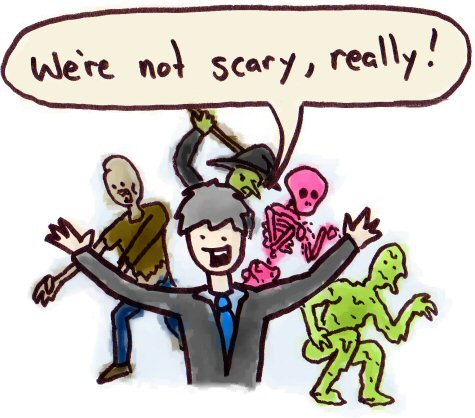ASA's 2012 Social Media Guideline note: Not quite a rule book

The aussie SoMe ad standards released last month cause quite a stir. NZ's ASA have just released their new guidelines and, as Keren Phillips discovered, they shouldn't be quite as scary for our local marketers.
The Advertising Standards Authority (ASA) released their official “social media guidance note” yesterday and, true to NZ form, it was nowhere near as dramatic as the release of their Australian counterpart’s version last month. So restrained are these new guidelines that they’re not even officially being called rules.This is simply a best-practice style recommendation. ASA saying, “Here are the things we’d like you to consider. Don’t take the piss or we’ll have to put some real fences in place”.You can read the full two-and-a-bit page document here, but for those of you who just want a Cliffs Notes version, here’s the breakdown:The ASA acknowledges social platforms are usually controlled by the people within the community. As such, brands are not likely to be held liable for breaches of the existing ASA code in the following situations:
- An individual posting a Brand’s TVC on YouTube with additional footage / comments
- An individual posting footage on YouTube using a brand or product but with no company involvement
- A tweet from a brand re-tweeted with added offensive content
- User-generated comments on brand social media platforms (moderated for harmful and offensive language and comments)
- User-generated comments to media platforms for use in editorial content
If complaints are lodged with the ASA regarding pieces of user generated content that COULD be construed as “advertising”, those complaints (and the content they concern) will be considered on a case by case basis.What does this mean? Basically, if some user gen content on your Facebook page is offensive to people and ASA receives complaints about it, they reserve the right to decide whether the content constitutes “advertising” and therefore is subject to the current code, or whether it falls under the “we have no jurisdiction here” list in the point above (in which case they’re most likely to let it slide).The questions they’ll ask when judging whether UGC is advertising will include:
- Did the Advertiser originally solicit the submission of the UGC from individuals and then adopt it and incorporate it within their own advertising?
- Did an individual provide the Advertiser, on an unsolicited basis, with material that the Advertiser subsequently adopted and incorporated within their own advertising?
- Did the Advertiser solicit UGC (for example via an invitation to enter a competition) that resulted in content being posted on the site?
That means all your lovely “submit your recipe and we’ll put it on TV” or “make us a new poster for our upcoming gig” competition submissions are potentially classed as advertising and therefore subject to the existing code.This shouldn’t change a lot for Facebook/forum/blog marketing to be honest, these platforms generally have their own guidelines and rules in place to prevent you form doing anything too dodgy already.In regards to Twitter though, they’ve introduced the #ad feature we’ve seen popping up on tweets from the States. The new rule of thumb is if you’re paying someone for an endorsement on Twitter, they’re required to include a #ad hashtag on the paid-for tweet.This one’s going to be interesting. There are a few obvious loopholes here so we may see a few sneaky brands trying to get around the restriction.Brands are also warned to be careful when they’re retweeting. Because a retweet can be interpreted as a message from the brand, you may be held liable if that message is misleading or offensive.This is particularly important for promos or giveaways that involve a specific qualifying method. For example, if your travel agency is giving away a trip to Hawaii by putting people who @mention you into a draw to win, and you retweet an eager punter who sent out “Just tweet @travelpeople and they’ll give you a free trip to Hawaii”, you could be held liable for false advertising when you don’t, in fact, give away free trips to every single person who tweets you.The rest of the Guideline Note goes on to encourage you to post a disclaimer on each of your presences, make sure you’ve got a clear moderation policy that you actually stick to, and give you a number of “best practice” guides for you to read and consider.Nothing there that’ll rock the boat too much I predict. I’m curious to see how many #ad tags start to pop up in my timeline though.Have you seen any yet? Do you think the ASA guys have missed anything or do you think the guide is fair? [Picture Credit]

